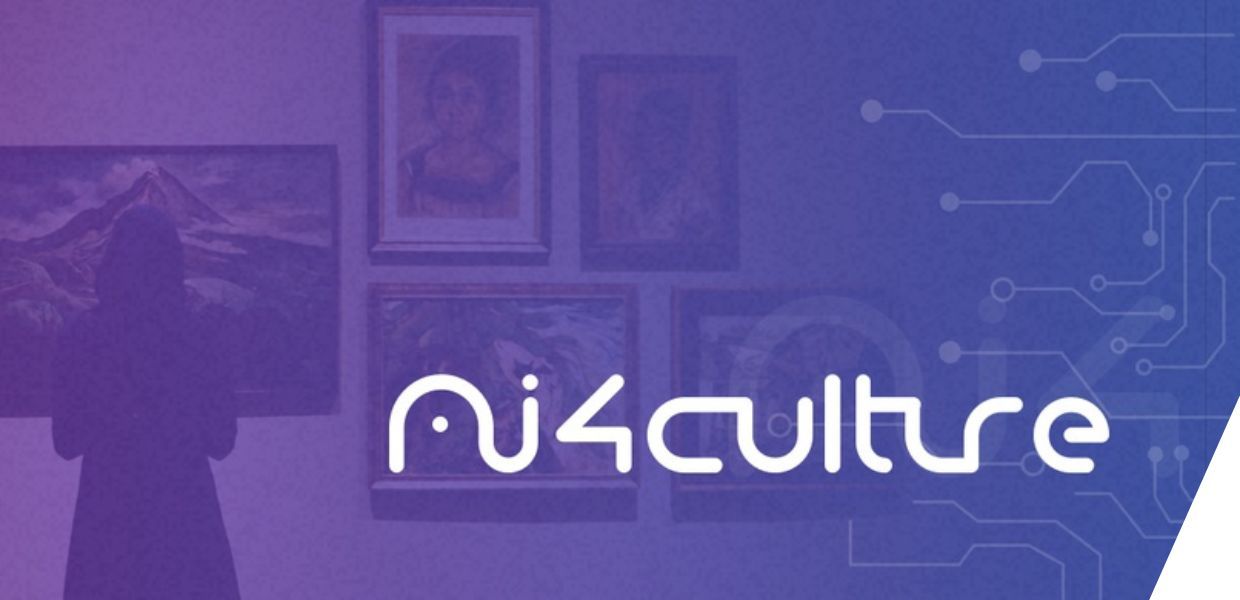AI4Culture is a data space supporting project which has developed an online platform for the application of artificial intelligence technologies in the cultural heritage sector. As part of the project, partners recently concluded a five-part workshop series designed to equip cultural heritage professionals with practical skills and insights into artificial intelligence applications. The workshops covered a variety of AI tools and applications, each offering unique benefits for cultural heritage work - read the details below!
The topics in focus
The first workshop, held on October 9, was led by CrossLang and the AIT Austrian Institute of Technology. It focused on optical character recognition (OCR) and handwritten text recognition (HTR) tools in the OCCAM and Transcribathon.eu environments to create, validate, enrich and translate transcriptions of scanned documents, making them accessible in multiple languages.
On October 15, the second workshop —hosted by Fondazione Bruno Kessler (FBK) and Translated— introduced the Subbit! platform and the Subtitling AI Pipeline. This session demonstrated the use of AI for generating and validating multilingual subtitles, opening new avenues for language accessibility in video content and helping cultural institutions reach diverse audiences through seamless subtitle production.
Continuing the series, the National Technical University of Athens (NTUA) led the third workshop on October 16, focusing on semantic linking in textual descriptions. Participants were introduced to the SAGE tool, which automates metadata enrichment through semantic linking, enhancing the interconnectedness and searchability of descriptive content for cultural heritage items.
On October 22, Pangeanic SL hosted a session dedicated to machine translation for multilingual cultural heritage metadata. This fourth workshop showcased the PECAT tool, which facilitates automated translation while enabling expert review and editing, helping institutions provide accurate multilingual descriptions and making cultural heritage collections more accessible globally.
The final session, held on October 30 by Datable, highlighted open-source tools for image analysis and explained basic concepts and different domains of Computer Vision; The workshop focused on using AI to tag and annotate images, supporting metadata enrichment and enabling more efficient categorisation and retrieval of visual data within cultural heritage collections.
Throughout the series, we welcomed 200 participants, including cultural heritage professionals, researchers, and technology enthusiasts. Each session was fully booked, creating a vibrant space for exchanging insights and hands-on learning that directly supports the preservation and accessibility of cultural heritage.
Access the recordings
For those unable to attend the sessions (or would like to watch them again!), recordings are now available on the AI4Culture platform, providing an opportunity to revisit each workshop’s discussions and exercises.
Get involved and find out more
These workshops have laid the groundwork for the AI4Culture Hackathons, set to take place from 18 - 20 February 2025, hosted by KU Leuven. The Hackathons will bring together students and cultural heritage professionals to explore creative AI applications in cultural heritage, marking another exciting milestone for AI4Culture. Follow AI4Culture on LinkedIn, X and our project page to be the first to hear when registration opens!
Can’t wait until February to learn more about AI4Culture? The project will be presented at the Heritage Horizons: Europeana Project week on Thursday 28 November. Register through the link below to discover how AI4Culture and other projects are shaping and enhancing the common European data space for cultural heritage.




